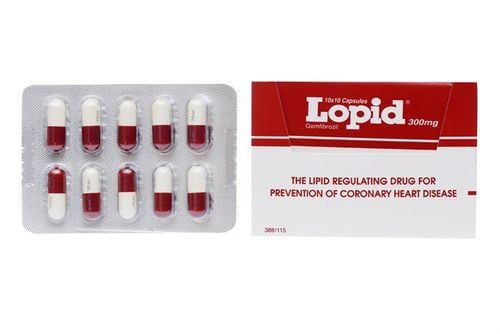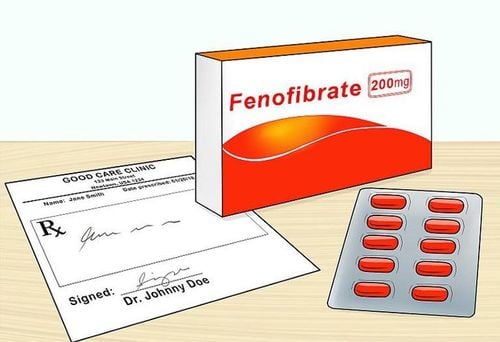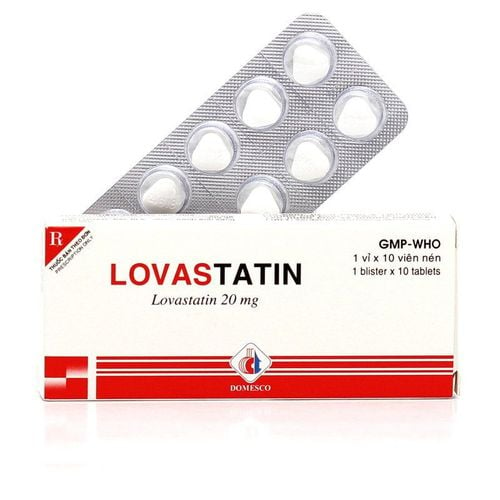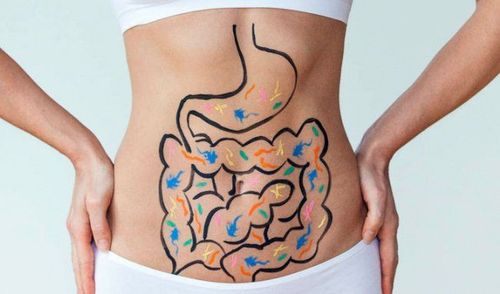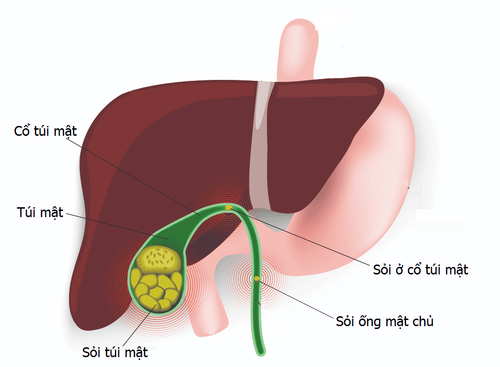This is an automatically translated article.
There are many types of fats. Your body makes its own fat from absorbing excess calories. Some fats are found in food. Dietary fats are macronutrients that provide your body with energy. Fat is essential to your health because it supports a number of bodily functions. However, certain types of dietary fat are thought to play a role in a number of diseases, such as metabolic cardiovascular disease, overweight and obesity. Also, fat is high in calories, so you need to balance your fat intake with the other foods you eat so that your body doesn't take in more calories than it needs. In this article, we will provide useful information for users to better understand the relationship between dietary fat and diseases.

Chất béo được tìm lại trong nhiều loại thực phẩm
1. Fat in the Diet
Fat is very important in each of our daily meals. Choosing foods high in healthy fats can help:
Maintain stable blood cholesterol levels, especially increase good cholesterol levels Reduce other cardiovascular risk factors Create flavor feed, stimulate digestion. Many people are often more concerned with the amount of fat put into the body every day. However, that is not as important as the type of fat they eat. Everyone can balance their daily fat intake by:
Increasing the amount of healthy fats and reducing the amount of unhealthy fats in their diet. Regularly enjoy a combination of heart-healthy foods. Follow these expert dietary guidelines for a healthy heart, helping to provide the body with the right balance of fats. Eat more healthy fats. Monounsaturated fats are considered healthy fats and they are found in foods like: avocados, nuts like almonds, cashews, peanuts, olives, vegetable oils or canola , peanuts, sunflower.... Besides, it is also necessary to add some foods containing healthy polyunsaturated fats (omega-3 and omega-6), including: fish, flaxseeds, beans soybeans, sunflower, canola oil, margarine.... Scientists also recommend getting omega-3 fats from all 3 sources: seafood, plants and animals.
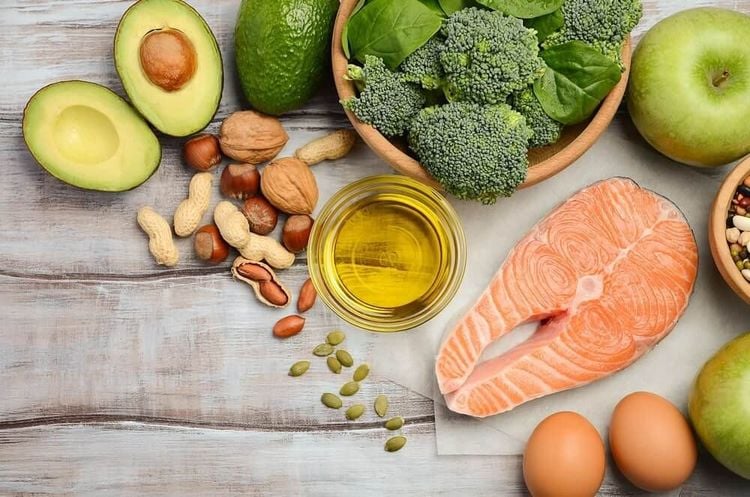
Cá hồi là một loại thức phẩm chức chất béo không bão hòa đa
Currently, a method to help reduce blood cholesterol through the diet is the use of plant sterols. Plant sterols are cholesterol-like substances that can lower blood cholesterol levels. They are found in many naturally occurring foods such as fruits, some vegetables, and whole grains. In addition, animal sterols have also been added to some canned foods such as margarine, milk, yogurt and packaged cereals.
Trans fat is also one of the types of fat that should be limited. Trans fats are found in certain foods such as butter, milk, and some meat products. Most trans fats come from processed foods. Some foods high in trans fats to eat less of include:
Fried foods Cookies and cakes Butter Fast foods, such as burgers, pizza and potatoes hot fries.
2. Fat and diseases
2.1. Diabetes
The type of fat in the diet can influence the development of diabetes. Good fats, such as polyunsaturated fats found in liquid vegetable oils, nuts, and seeds can help prevent type 2 diabetes, while trans fats do the opposite.
If one has been diagnosed with diabetes, eating seafood such as fish may help protect against heart attack or death from heart disease. Eating omega-3 fats from fish does not protect against diabetes, although there is strong evidence that omega-3 fats from seafood sources help reduce the risk of death related to heart disease.

Chất béo tốt giảm nguy cơ mắc bệnh đái tháo đường type 2
2.2. Metabolic cardiovascular disease
In a randomized controlled trial, a Mediterranean diet supplemented with extra virgin olive oil or nuts, both rich sources of unsaturated fats, reduced the incidence of diseases Cardiovascular events in patients with diabetes or other risk factors for approximately 5 years were followed. This study highlights that a low-fat diet is unlikely to have the effect that incorporating healthy fats – such as those found in the Mediterranean diet – can improve health. heart health.
There is no fixed menu for the Mediterranean diet, as this style of eating can incorporate different foods, diets and lifestyles in many bordering countries. Mediterranean Sea. However, there are similarities that define the eating patterns of people living in the Mediterranean including:
Eating lots of olive oil, nuts, vegetables, fruits and mostly whole grains Eating fish and poultry in moderation Eat less dairy products, red meat, processed meat and sweets Drink in moderation and should be taken with meals
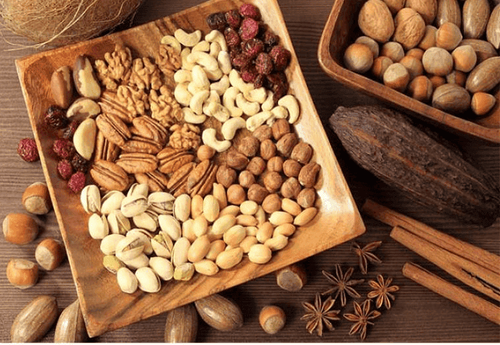
Ngũ cốc nguyên hạt là thực phẩm có mặt trong chế độ ăn của người Địa Trung Hải
2.3. Cancer
Researchers once suspected a link between dietary fat and common cancers. However, in adults, the ratio of calories consumed from total fat does not appear to have a significant association with cancer risk, and there is currently no clear evidence linking any particular type of fat. with cancer rates.
Breast cancer
In the early 1980s, most nutritionists believed that dietary fat was the main cause of breast cancer. This view is largely based on international comparisons showing higher rates of breast cancer in countries with higher per capita fat intake. But as more prospective studies and randomized controlled trials were performed over the next several decades, the apparent link between total fat intake and breast cancer has diminished significantly.
A diet modification trial specifically designed to test the effects of a low-fat diet on breast cancer development, showing similar rates of breast cancer in women eating a low-fat diet and in “normal” eaters
Another study from the National Institutes of Health - The AARP Health and Dietary Study found a very weak association between fat and postmenopausal breast cancer, but when combined with many of the other studies detailed above, the overall evidence for a relationship between total fat intake and breast cancer is overwhelming. In recent studies, saturated fat is weakly associated with one form of breast cancer, but this may be due to differences in physical activity and needs to be confirmed after conducting other studies. Although studies of different types of fat have largely failed to find a link with breast cancer, some evidence suggests that eating animal fats in young women can increases the risk of breast cancer. Premenopausal women who ate a diet high in animal fat had a 40 to 50% higher risk of breast cancer than women who ate less animal fat. Because vegetable fats are not associated with breast cancer risk, these findings suggest that red meat and high-fat dairy products may contain other factors, such as hormones, that increase cancer risk. breast letter.

Ung thư vú có thể xảy ra do tiêu thụ nhiều thức ăn chứa chất béo xấu
Colon cancer
For colon cancer, initial international comparisons show an association between total dietary fat and colon cancer risk. But later and better studies have contradicted earlier findings and found no significant association.
Although fat intake does not appear to increase the risk of colon cancer, there is solid evidence that high consumption of red meat (beef, pork and lamb) and especially processed meat (sausage) sausages, bacon, and cold cuts) increase the risk of colon cancer. Based on this evidence and other studies related to heart disease and diabetes, experts recommend that it's best to limit red meat consumption to no more than twice a week and avoid processed meats.
Prostate cancer
Although the exact link between dietary fat and prostate cancer is still unclear, there is some evidence that a diet high in animal fat and Saturated fat may increase the risk of prostate cancer. However, other studies have not shown any association, while others have been linked to unsaturated fats. Therefore, to elucidate any possible link between dietary fat and prostate cancer, more research is needed.
Other types of cancer
Preliminary research has also linked the consumption of certain types of fat with other cancers, although more research is needed to confirm these results. In the Nurses' Health Study, Harvard researchers found that high consumption of trans fats was associated with an increased risk of non-Hodgkin's lymphoma.

Ung thư tuyến tiền liệt và chất béo được cho là có mối liên hệ với nhau
2.4. Other chronic medical conditions
There is currently a lot of research underway on the effects of dietary fat on conditions such as depression, osteoporosis, age-related memory loss, cognitive decline, macular degeneration, multiple sclerosis, infertility, endometriosis, and other chronic medical conditions. However, these preliminary findings do not provide sufficient evidence to recommend revision of dietary fat recommendations.
The types of fats we eat every day play an important role in heart health in particular and the general health of the body in general. Experts recommend choosing healthy fats, including nuts, avocados, olives and their oils for cooking. And while high-fat foods may seem to be harmful, some fats play an essential role in protecting our own health.
Please dial HOTLINE for more information or register for an appointment HERE. Download MyVinmec app to make appointments faster and to manage your bookings easily.
References: hsph.harvard.edu, diabetes.org.uk, heartfoundation.org.au, aicr.org



